In March 2024, an amazing breakthrough emerged that could change the way we treat cancer.
Used to treat a fatal form of brain cancer also known as glioblastoma, the therapy trial saw ‘dramatic responses within days’ for the patients in the trial.
Researchers and surgeons out of the Mass General Brigham healthcare system use a new approach to CAR-T therapy, a complex and personalized treatment that prompts your immune system to attack the cancer cells.
Usually used to treat leukaemia, CAR-T therapy harnesses the patient’s own immune system to treat their condition. Typically, a patient’s blood is taken and sent to a lab where it’s ‘trained’ to fight the cancer cells before being transferred back to the patient and administered to treat their condition.
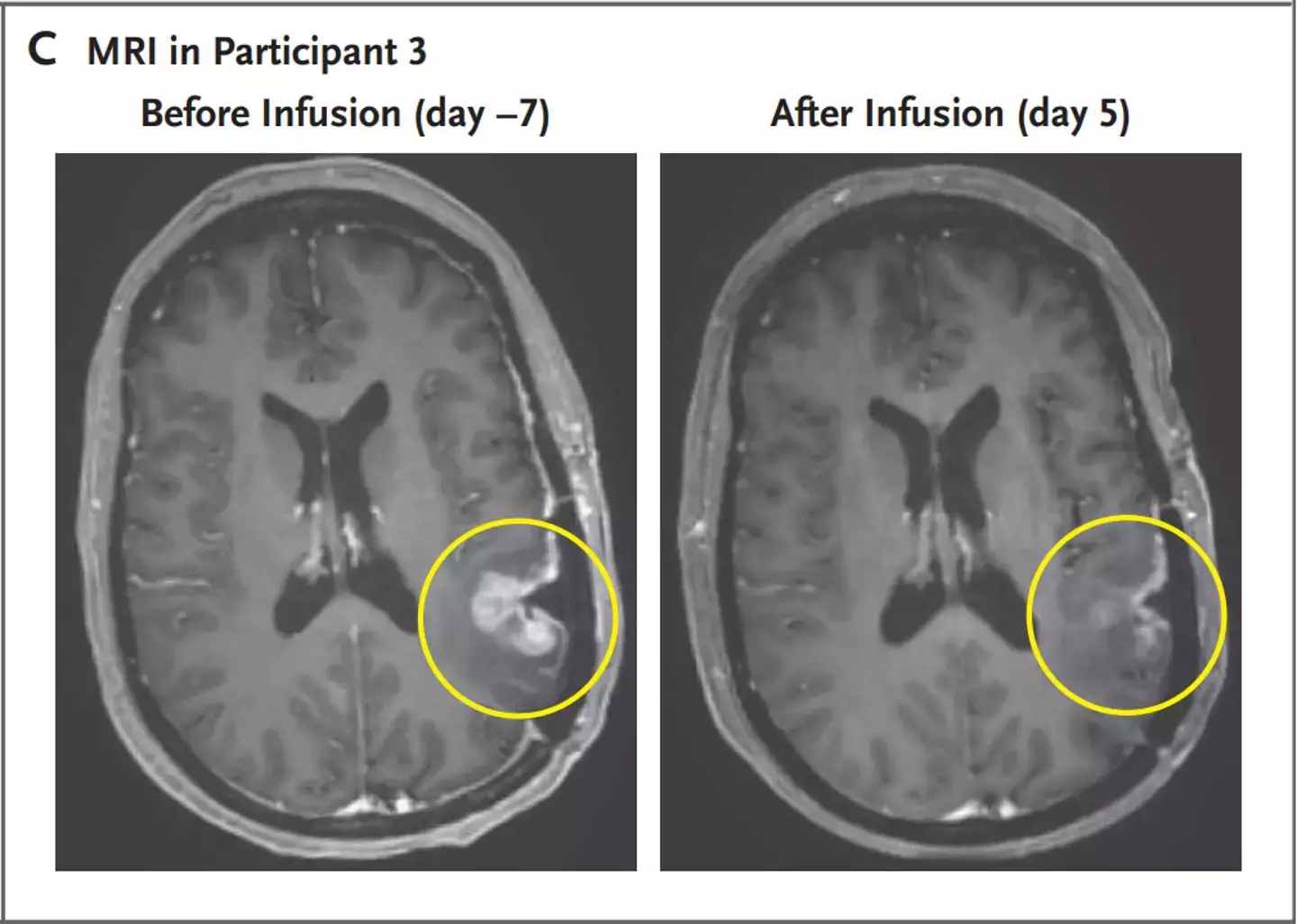

In this case, the researchers and surgeons treated three patients with recurrent glioblastoma using a variant of existing CAR-T therapy, adding antibodies to the treatment — and the results were astonishing.
Reported in a paper published in The New England Journal of Medicine, one patient saw an 18.5% decrease in their tumor size just two days after treatment. By day 69, the tumor had decreased by an incredible 60.7%. Another patient saw their ‘tumor regress rapidly’, according to the Mass General Brigham.
Following the third patient’s treatment, an MRI showed that a single infusion had led to a ‘near-complete tumor regression’ in just five days.
“The CAR-T platform has revolutionized how we think about treating patients with cancer, but solid tumors like glioblastoma have remained challenging to treat because not all cancer cells are exactly alike and cells within the tumor vary," said Bryan Choi, MD, PhD, neurosurgeon and associate director of the Center for Brain Tumor Immunology and Immunotherapy, Cellular Immunotherapy Program, Mass General Cancer Center and Department of Neurosurgery.
He continued: "Our approach combines two forms of therapy, allowing us to treat glioblastoma in a broader, potentially more effective way.”
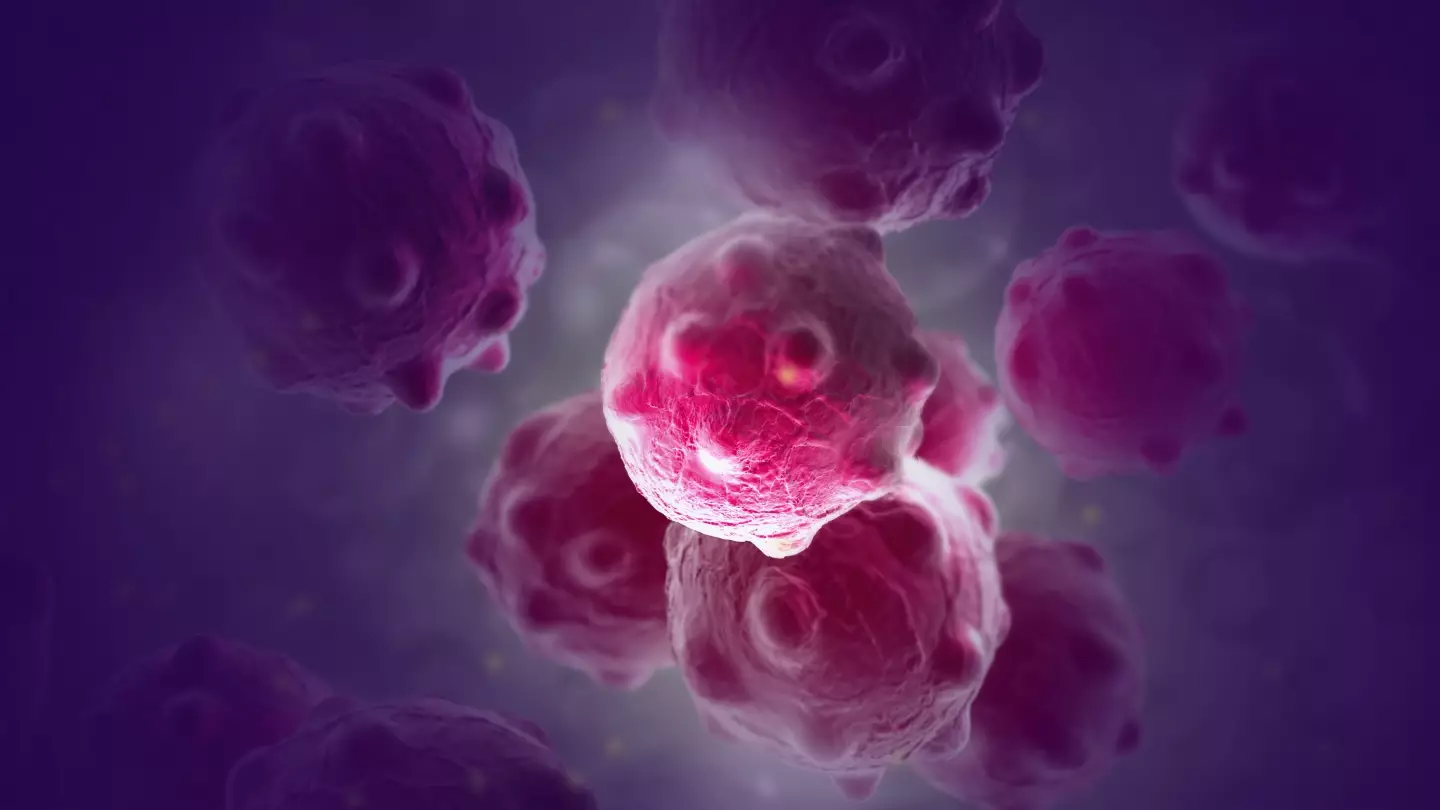

Mass General Brigham say studies similar to this one ‘show the promise of cell therapy for treating incurable conditions’, giving people considerable hope.
As mentioned, CAR-T therapies are usually used to treat blood cancers, but this study shows its potential for treating solid tumors.
While this gives hope to people with these conditions, it is worth noting that this was a small study of three patients, and more research is needed before the treatment is rolled out more widely for solid tumors.
Study co-author Elizabeth Gerstner, MD, a neuro-oncologist in the Department of Neurology at Massachusetts General Hospital, said: “We report a dramatic and rapid response in these three patients. Our work to date shows signs that we are making progress, but there is more to do."
Marcela Maus, MD, PhD, director of the Cellular Immunotherapy Program agreed, and said: “These results are exciting, but they are also just the beginning - they tell us that we are on the right track in pursuing a therapy that has the potential to change the outlook for this intractable disease. We haven’t cured patients yet, but that is our audacious goal.”
An incredible breakthrough has happened in the world of cancer treatment.
A pioneering new therapy has been used to treat a deadly form of brain cancer, and the first three patients reportedly saw 'dramatic responses within days'.
Researchers and surgeons from the Mass General Brigham healthcare system used a new approach to CAR-T therapy, which is a complex and personalized treatment that encourages your immune system to attack the cancer cells.
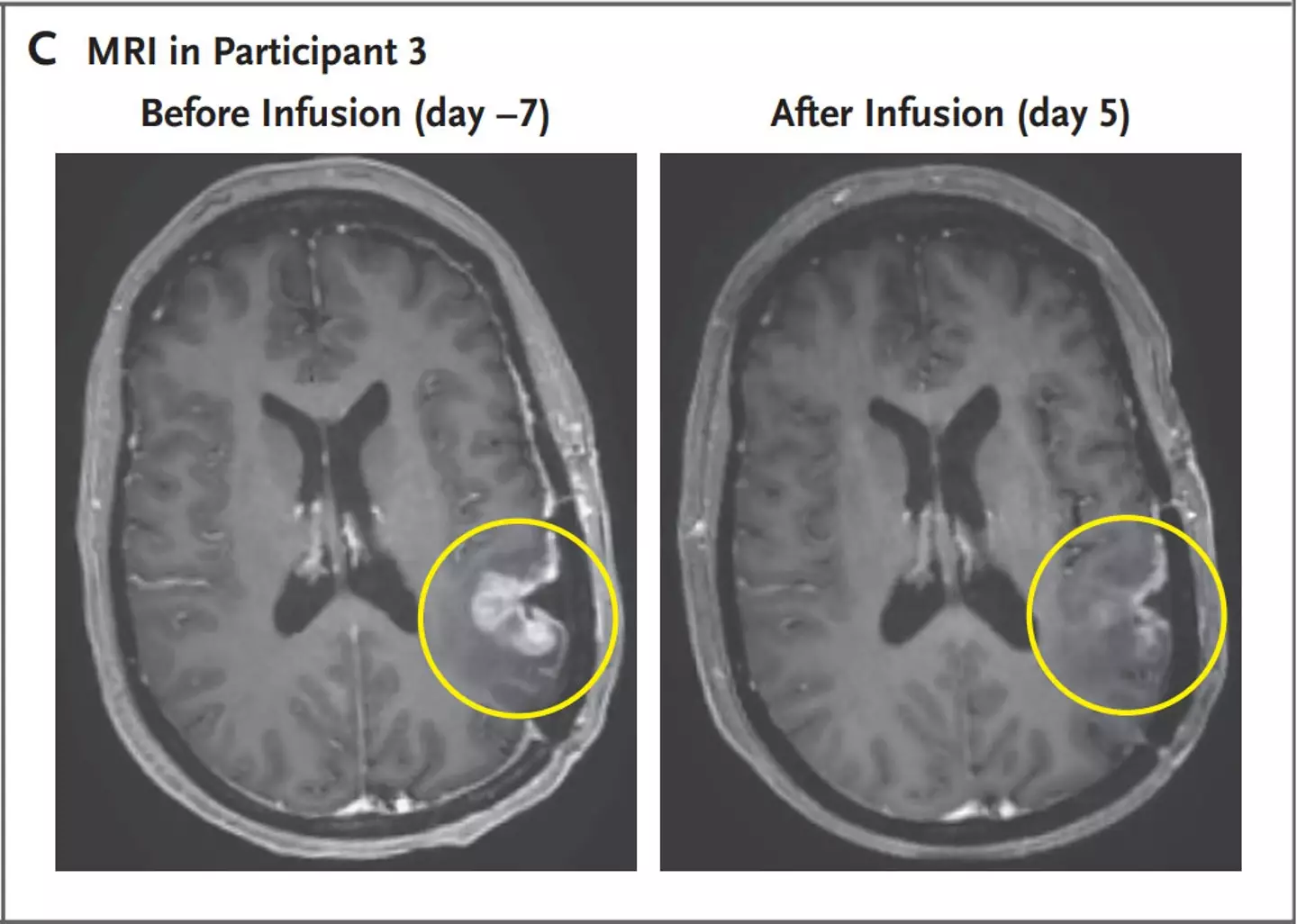

They treated three patients with recurrent glioblastoma using a variant of an existing CAR-T therapy, adding additional antibodies to the treatment - and the results were truly astounding.
According to the paper published in The New England Journal of Medicine, one patient saw their tumor decrease in size by 18.5% two days after the treatment, and by day 69, the tumor had decreased by 60.7%, while another saw their 'tumor regress rapidly', according to Mass General Brigham.
After the third patient was treated, an MRI showed that a single infusion had led to a 'near-complete tumor regression' in just five days.
“The CAR-T platform has revolutionized how we think about treating patients with cancer, but solid tumors like glioblastoma have remained challenging to treat because not all cancer cells are exactly alike and cells within the tumor vary," said Bryan Choi, MD, PhD, neurosurgeon and associate director of the Center for Brain Tumor Immunology and Immunotherapy, Cellular Immunotherapy Program, Mass General Cancer Center and Department of Neurosurgery.
"Our approach combines two forms of therapy, allowing us to treat glioblastoma in a broader, potentially more effective way.”
According to Mass General Brigham, studies like this one 'show the promise of cell therapy for treating incurable conditions'.
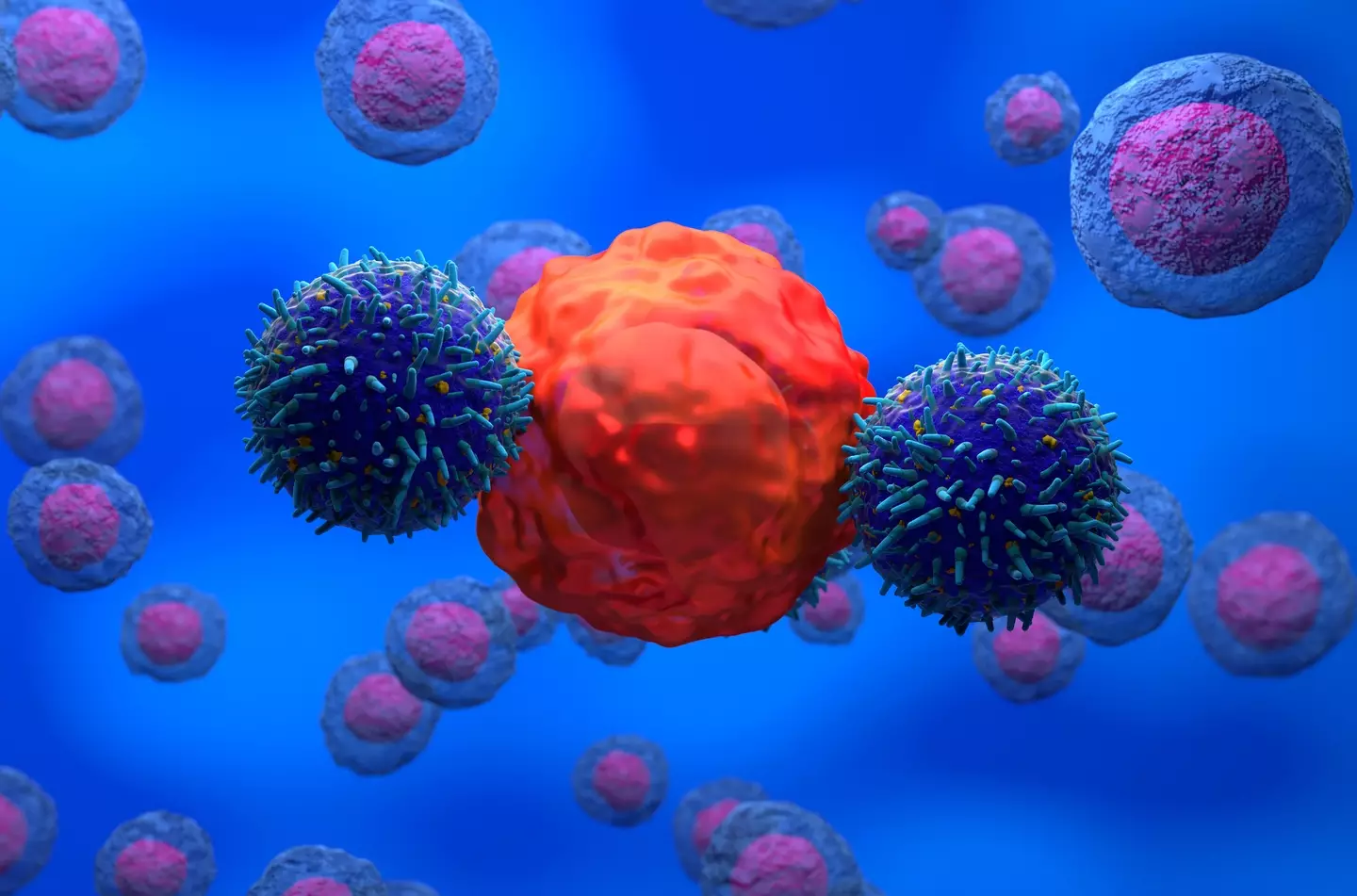

While CAR-T therapies tend to be used for treating blood cancers, this was the first step towards potentially using it to target solid tumors.
However, it's worth noting that this was a very small study of just three patients. While the results seem to be remarkable, a lot more work needs to be done before a treatment like this could be approved and rolled out more widely.
Study co-author Elizabeth Gerstner, MD, a neuro-oncologist in the Department of Neurology at Massachusetts General Hospital, said: “We report a dramatic and rapid response in these three patients. Our work to date shows signs that we are making progress, but there is more to do."
Marcela Maus, MD, PhD, director of the Cellular Immunotherapy Program agreed, and said: “These results are exciting, but they are also just the beginning - they tell us that we are on the right track in pursuing a therapy that has the potential to change the outlook for this intractable disease. We haven’t cured patients yet, but that is our audacious goal.”
Groundbreaking health studies in the United Kingdom have been able to shrink one man's deadly brain tumor by half in just a matter of weeks.
As cancer diagnoses continue to rise and are expected to hit 29.9 million new diagnoses by the year 2040, research is ongoing on how best to tackle the disease.
We can only imagine what it's like being diagnosed with a brain tumor, but for 62-year-old Paul Read, he's been facing this prognosis since December 2023.
Now, he's enrolled in a potentially life-changing study.
Doctors at University College London Hospitals NHS Foundation Trust (UCLH) are focusing a clinical trial on glioblastoma, which is a type of cancer that tends to kills most patients within 18 months.
Thanks to new treatment as part of the CITADEL-123 trial, doctors are injecting low levels of radiation directly into the tumor, hoping to kill off the cancerous cells.
Read is the first patient to undergo this radical treatment, although a second participant has just started their treatment.
As for Read, he's seen his tumor shrink by up to 50% in a matter of weeks.
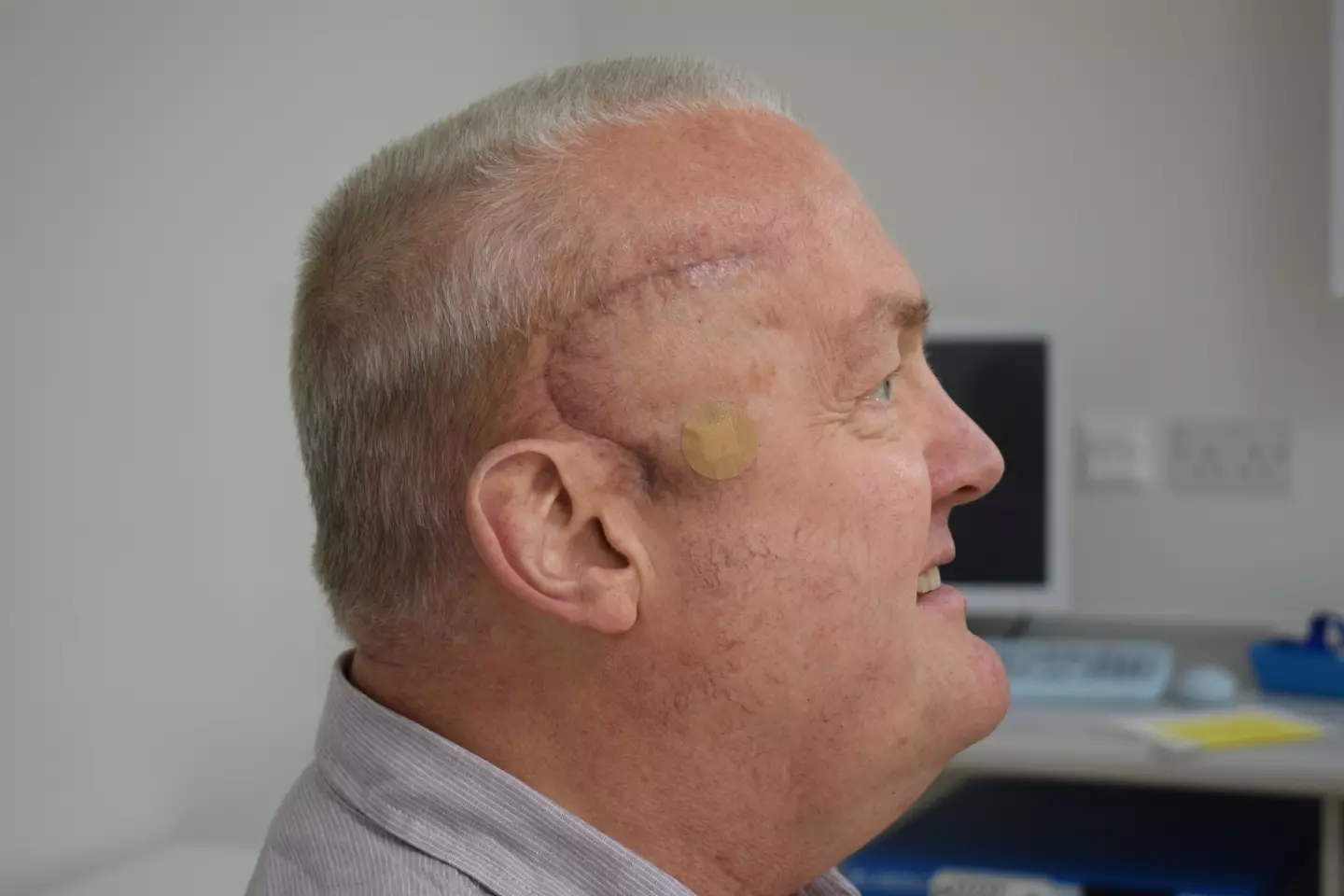

Surgeons removed as much as Read's tumor as possible and then implanted a small medical device known as an Ommaya reservoir under his scalp
The ATT001 Iodine-123 labelled PARP inhibitor is injected weekly into Read's tumor, with treatment running for between four and six weeks.
As ATT001 is incredibly potent over short distances, it's supposed to cause lethal damage to the cancerous cells but save healthy tissue.
Read first noticed a severe headache last December, and after two weeks of pain, his wife worried that he'd suffered a stroke due to his face dropping on one side.
Doctors discovered the glioblastoma and attempted to remove it, followed by radiotherapy and chemotherapy.
Sadly, as Read has been diagnosed with a recurrent glioblastoma, treatment hasn't worked so far.
After agreeing to take part in clinical research and saying he knew 'the outcome isn't great,'' Read said he was happy to be enrolled on the CITADEL-123 trial: "This trial was a lifeline, as the likelihood of survival according to the data was a year or less for me.
“I am delighted to be given the opportunity to be part of this trial and I have not experienced any side-effects from the injections."
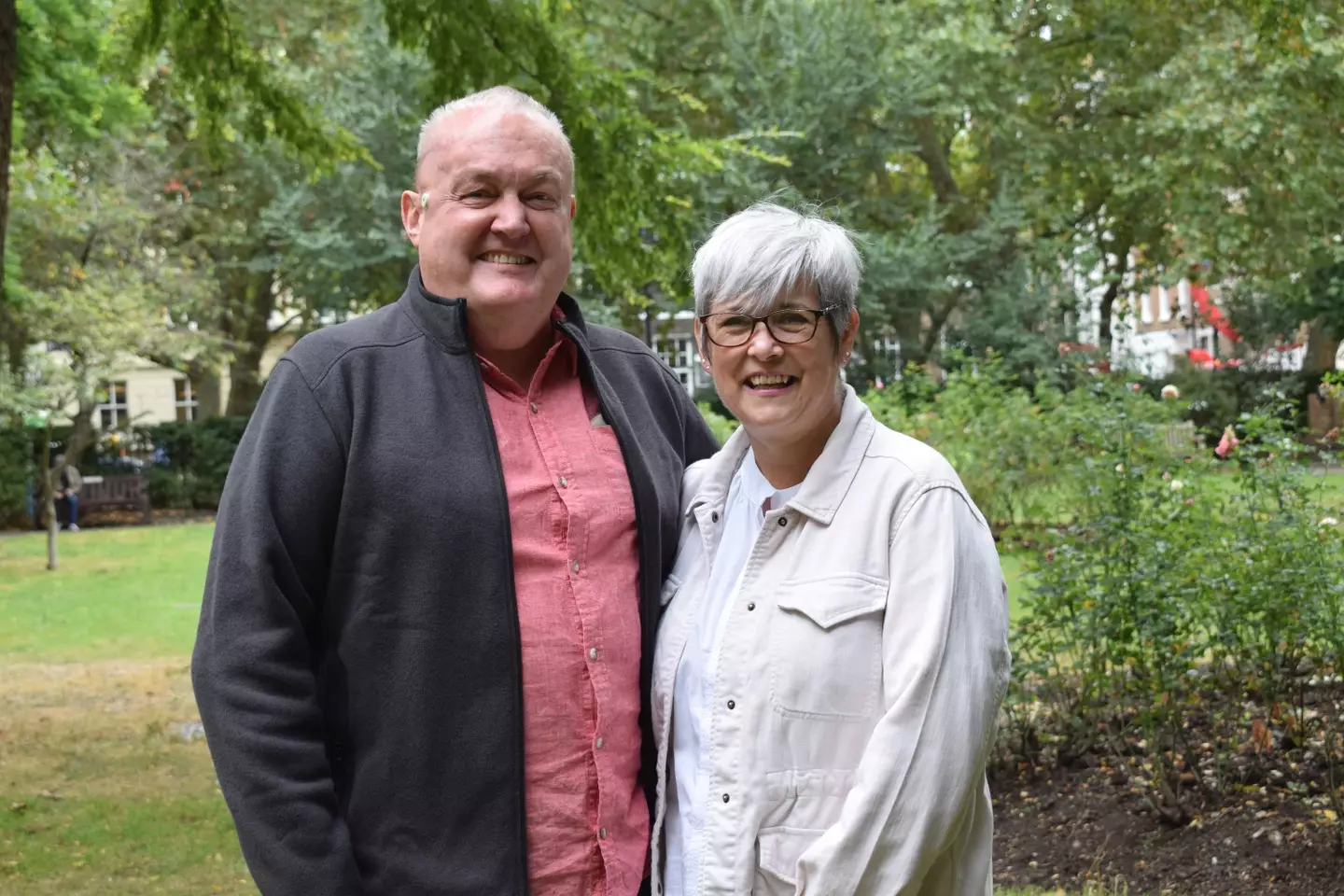

Saying that while he's a little tired, Read says he generally feels 'very good': "I’m not frightened by any of this. We are all dealt a hand of cards and you don’t know which ones you are going to get...It will be wonderful if this treatment helps me and if it doesn’t, it doesn’t.
"CITADEL-123 was designed by UCLH consultant medical oncologist, Dr Paul Mulholland, who told the PA news agency that things have being going swimmingly so far: "The radioactivity in the drug targets the tumour cells specifically – it’s a tiny amount of radioactivity."
As for Read's tumor shrinking by 50%, Mulholland is hopeful that this could be the start of something great: "We’ve just gone through his scan results with him and his end of treatment scan shows a reduction in the tumour, which is really quite remarkable for somebody whose tumour is so aggressive."
Still, as this is the first in-human study, Mulholland remains 'cautious' and is only treating patients for six weeks.
The team is currently only treating one patient a month, but with hopes to expand the trial into other phases, it's hoped that CITADEL-123 could soon be rolled out on a wider scale.







No comments:
Post a Comment